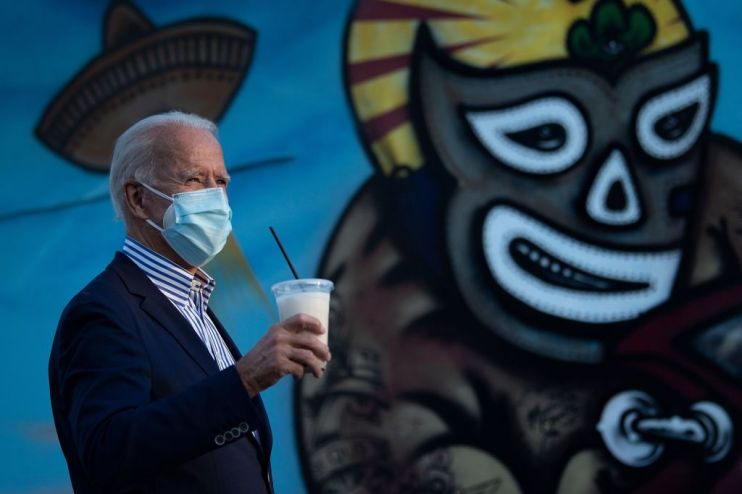Is irrational exuberance skewing US election betting?

It has been an extraordinary week on Betfair’s US election markets. An average of £3million traded per day, amounting to around 15% of the total matched since November 2016. That sharp rise in volume triggered two of the most rapid and substantial market moves seen all year – one for each candidate.
By the end, the odds were back where they started. Biden’s odds imply a 66% chance while Trump is at 34%. This despite the challenger moving further ahead in the polls. Indeed the mismatch between polls and betting is as stark as ever.
Every day that passes without Trump showing evidence of a turnaround, his chance decreases with prediction models such as Fivethirtyeight, whose estimate already factors in the possibility of such change. Their relatively conservative model has Biden up to 87%, while the Economist are 91%.
Yet the betting markets remain resistant. When Biden hit his lowest odds yet at the weekend at 2/5 (69%), it seemed they were beginning to join the consensus. But as Trump returned to the campaign trail in Florida on Monday, so did his army of backers. Within 24 hours, the weight of money had pushed Biden back out to 1/2 (66%).
Previous elections
It is important to note how different these trends are from other major elections. Consistent polls usually drive the favourite’s odds ever shorter. For example at the equivalent stage of the last UK election, the Conservative lead was slightly lower than Biden’s, yet their odds to win most seats were around 95%.
Nor do these trends fit previous US examples. Clinton was an 83% chance at this stage, with half the lead. Biden is 10% ahead, yet trading around the same odds as Obama in 2012 when leading by 2%. Obama’s 6% lead in 2008 equated to 84% in the betting.
There are many plausible explanations: Fear, and misreading of the 2016 upset. Gender bias – most gamblers are men, among whom Trump fares much better than with women. A tendency for ‘Alt-Right’ candidates to be gambled into unrealistic short odds, as seen in the Dutch, French and particularly Swedish elections. Not to mention his celebrity factor.
All may apply in general but the most recent gambles are best explained by the unique psychological dynamics in play.
The last time a pro-Trump move transformed the betting came during and after the Republican Convention. My view was that supporters were pumped and carried that enthusiasm into the betting. There was never any polling evidence to support it and this time it coincided with his triumphant comeback from Covid, starting the night of his rally. Again, polls were irrelevant.
Confident as ever
Anecdotally, Trump supporters seem as confident as ever, either disbelieving the polls or optimistic that something will change in his favour. In stark contrast, Trump opponents seem terrified. They daren’t take anything for granted after 2016 and are jumpy about ‘events’, despite the remarkable consistency of their poll lead.
That also reflects the fragmented, ‘post-truth’ media environment. Various research has illustrated how the two sides of America’s partisan divide are locked into opposing news cycles, receiving very different information and facts. Mainstream news arguably cuts through less than micro-targeted disinformation on Facebook.
That equally applies to the global betting market, whose players are just as divided on the omnipresent ‘Trump question’. The message that the polls are fixed, or were more wrong than in reality last time, is widespread. Why would viewers disbelieve if not hearing that information contradicted?
To those of us that trust polls as a good, if imperfect, guide to public opinion, the betting is irrational. It would be fair for traders to mark Biden’s odds higher than polling models, because election markets tend to be volatile, especially as results arrive.
For me, 1/4 or 80% would be a ‘conventional’ price. At 67%, it represents a unique opportunity to bet that the entire polling industry has not been systematically wrong for years, on a scale incomparable to any misread seen in the 21st century.
Odds were correct at the time of writing, check Betfair Exchange for the latest US election odds. 18+ please gamble responsibly